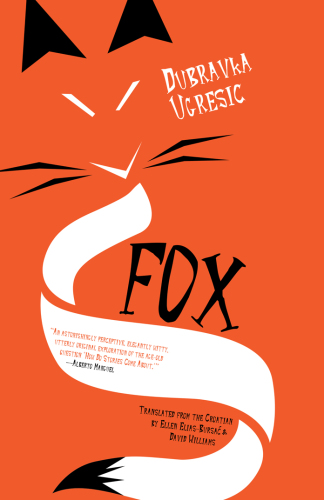
Fox
کتاب های مرتبط
- اطلاعات
- نقد و بررسی
- دیدگاه کاربران
نقد و بررسی

Starred review from January 22, 2018
Ugrešic´’s soaring, incisive novel uses the shape-shifting avatar of the fox to explore story-making. The linked narrative structure is reminiscent of her novel The Museum of Unconditional Surrender, as an unnamed narrator in exile from the former Yugoslavia struggles with the complications of 21st-century writing. There are six sections, tonally varied save for the inevitable appearance of a fox in each, that cascade together in the thrilling climax, which merges the emotional—the narrator’s love for her niece—and the practical—the narrator’s disappointing visit to a Holden Caulfield-themed MFA program in Italy (it’s named Scuola Holden). Two sections take on the form of essays, with some factual material and some invented by the writer. One examines a Japanese narrative by the Russian writer Boris Pilnyak; the other is a sketch of Dorothy Leuthold, a minor figure in the Nabokov cosmos. Two sections are set in Europe’s literary community, as the narrator suffers the minor indignities of life as an “economy-class writer” while she is taught lessons about storytelling by two older women who are each associated with obscure Russian authors named Levin. In the remarkable third section, “The Devil’s Garden,” the narrator inherits a house in Croatia and forges a surprising connection. “The urge for home is powerful,” she writes; “it has the force of primal instinct.... The greatest feat of every emigrant seems to be making a new home.” Ugrešic´’s novel is a wonder; it’s essential reading for writers and lovers of writing alike.

Starred review from April 1, 2018
In this remarkably engaging novel-cum-meditation, Croatian-born, Netherlands-based Ugresic (The Museum of Unconditional Surrender) opens with an intensive examination of early 20th-century Russian author Boris Pilnyak's "A Story About How Stories Come To Be Written," tracking its roots to Japanese author Jun'ichiro¯ Tanizaki's A Fool's Love, an "I-Novel" or "novel of the self." Her own sui generis I-novel is set variously at a literary conference in Italy, a house she's gifted in a Croatian village, and a classroom of unresponsive students. Here, the speaker deftly blends consideration of "newcomers" (Ugresic herself is an exile, forced from home for opposing nationalism during the Yugoslav Wars), the value of literature in a world driven by pop culture and commercial flash, the role of women as writers vs. muses, and the recognition that "the only thing unambiguous and constant is loss." Underlying the probing narrative is the Eastern European folkloric concept of the fox as cunning and treacherous--a sly trickster who, like writers, stands outside the circle of society. VERDICT A bracing intellectual conversation for sophisticates.
Copyright 2018 Library Journal, LLC Used with permission.

Starred review from February 15, 2018
Another tricky treasure from an internationally renowned author.Ugresic has been in exile from her native Croatia since the region emerged as a country after the breakup of Yugoslavia. A vocal critic of nationalism, she was, she says, branded a "whore, a witch, and a traitor." It's that second slur that is most intriguing when it comes to reading the author's work. In Baba Yaga Laid an Egg (2010), she used a magical crone from Slavic folklore as a lens through which to view contemporary women's lives. Here, she takes inspiration in the vulpine creature who gives this new book its name. As a mythic figure, the fox takes on and sheds attributes as he--or she--travels across cultures, but one characteristic seems to remain constant: The fox is an ambivalent type. By making the fox a sort of mascot to the first part of her novel, a section called "A Story about How Stories Come to Be Written," Ugresic is creating an affinity between the writer and the trickster. Even at her most straightforward, Ugresic is a sly storyteller, and here she is using every trick in the postmodernist playbook. Indeed, there are moments when it seems like she's pulling a fast one even when she isn't. For example, a reader who isn't knowledgeable about early-20th-century Russian literature might be forgiven for thinking Okay! An American Novel by Boris Pilnyak is an invention simply because that title is just too perfect. If Okay! is Ugresic's creation, it's a clever one. But the reader who bothers to Google is in for the delightful discovery that both Pilnyak and his "American novel" are real. Then we're left to wonder what true and false mean in fiction anyway, a question Ugresic complicates by using a first-person narrator and autobiographical detail. The translators deserves special mention, too. "The fox meets frequently with affliction, and is thus consigned to loserdom, its personal attributes preventing contiguity with higher mythological beings." The juxtaposition of "loserdom" and "contiguity" is not only funny; it also captures the high-low essence of Ugresic's style.Brilliant and laugh-out-loud funny.
COPYRIGHT(2018) Kirkus Reviews, ALL RIGHTS RESERVED.

























دیدگاه کاربران